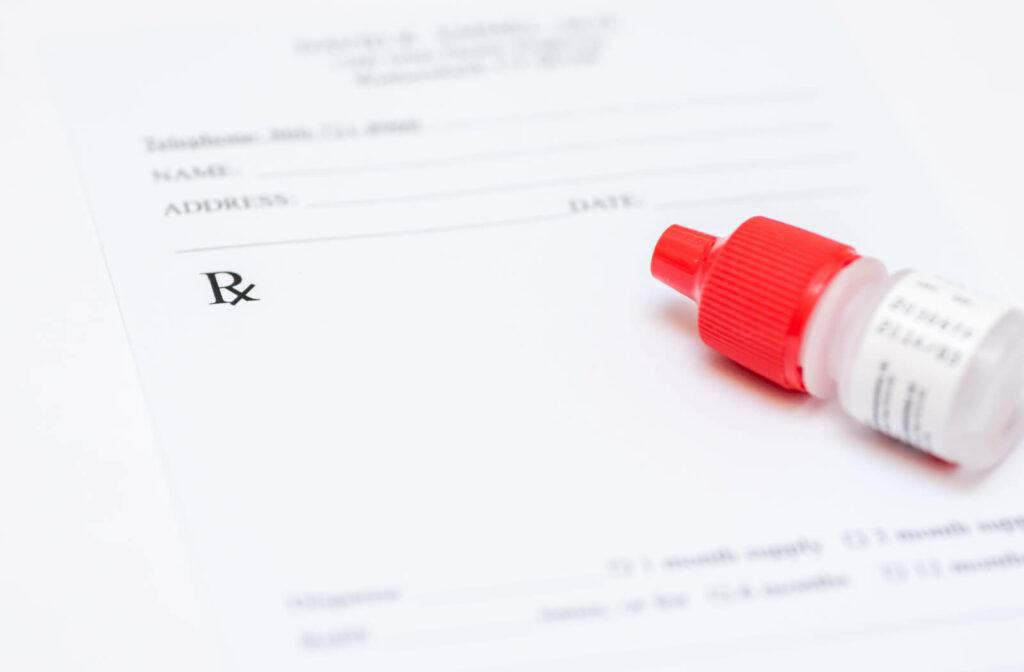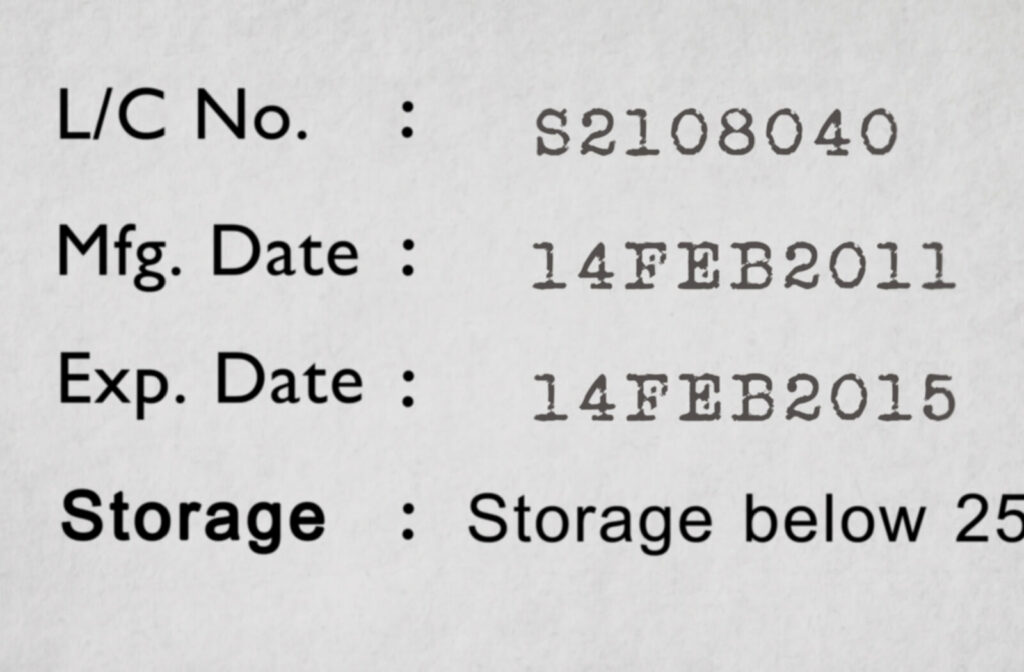Have you ever wondered why your eye drops come with an expiration date? It’s not a meaningless number. Expired eye drops could do more harm than good. But why do eye drops expire?
The shelf life of eye drops varies depending on their formulation. But no matter what kind you’re using, expired eye drops are no longer sterile and can cause irritation or infection.
Eye drops can be an easy and effective solution to many common eye issues, but you should consult your optometrist before putting any product in your eyes.
What Are the Different Types of Eye Drops?
Eye drops come in different formulations and types, making it essential to know which eye drops are right for you and your symptoms.
Artificial Tears
Artificial tears mimic natural tears and help lubricate the eyes, reducing dryness and irritation. They’re often recommended for dry eyes caused by computer use, contact lenses, meibomian gland dysfunction, and the environment
Sometimes called lubricating eye drops, these drops come with both preservatives and preservative-free formulas. Preservatives often make these drops last longer, but the preservatives can cause irritation. Preservative-free drops are easier on sensitive eyes but don’t last as long.
Antibiotic Eye Drops
Optometrists prescribe antibiotic eye drops to fight bacterial eye infections such as conjunctivitis (pink eye) and corneal ulcers. They must be used correctly and consistently to avoid resistance to medication. Most antibiotic eye drops only last a couple days to a month after opening. Every medication is different.
Anti-Allergy Eye Drops
Anti-allergy eye drops are designed to prevent allergies from making your eyes itchy and watery. These drops contain antihistamines, which stop histamines from causing allergic reactions. You can buy them without a prescription, and they come in options with or without preservatives.
Why Do Eye Drops Expire?
Unlike the food in your pantry with best-before dates, expiry dates are the cut-off date when the manufacturer can guarantee the drops’ safety and effectiveness. Beyond that date, the eye drops can pose a risk to your eyes.
Lose Effectiveness
Eye drops expire mainly because they lose their effectiveness over time. The active ingredients in eye drops can break down and become less potent. This means that expired eye drops may not provide the same level of relief as fresh ones do.
Bacteria Growth
The preservatives in eye drops also break down over time, which can lead to bacteria growth, especially after opening the bottle. Using expired eye drops can increase the risk of infection or irritation to the eye.

How to Help Your Eye Drops Last
Some ways you can help maximize the lifespan of your eye drops include:
- Storing your eye drops in a cool, dry place.
- Keeping your eye drops away from direct sunlight.
- Practicing good hand hygiene when putting in eye drops.
It’s essential to clean your hands and practice good eye drop use to prevent cross-contamination from introducing harmful bacteria to the bottle.
Preservatives vs. Preservative-Free
Not all eye drops have the same expiration date. Some eye drops are preservative-free and are designed for single-use only. These drops typically have a shorter shelf life and should be discarded after one use. Multi-use eye drops can usually be used for several weeks after opening as long as they are correctly stored and have not expired.
So, how do you know if your eye drops have expired? Look for the expiration date printed on the packaging or bottle. If it has already passed, it’s time to toss them out. You should also discard eye drops that appear cloudy, discoloured, or have particles floating in them. These are signs that bacteria growth may have occurred, and the eye drops are no longer safe to use.
Support Healthy Eyes with Regular Eye Exams
Eye drops can help soothe symptoms of discomfort and irritation, but a visit to your optometrist can help uncover the cause of your symptoms and identify the proper treatment for long-term relief. Schedule an eye exam with River Heights Eye Care to support your vision, maintain eye health, and preserve comfort.


